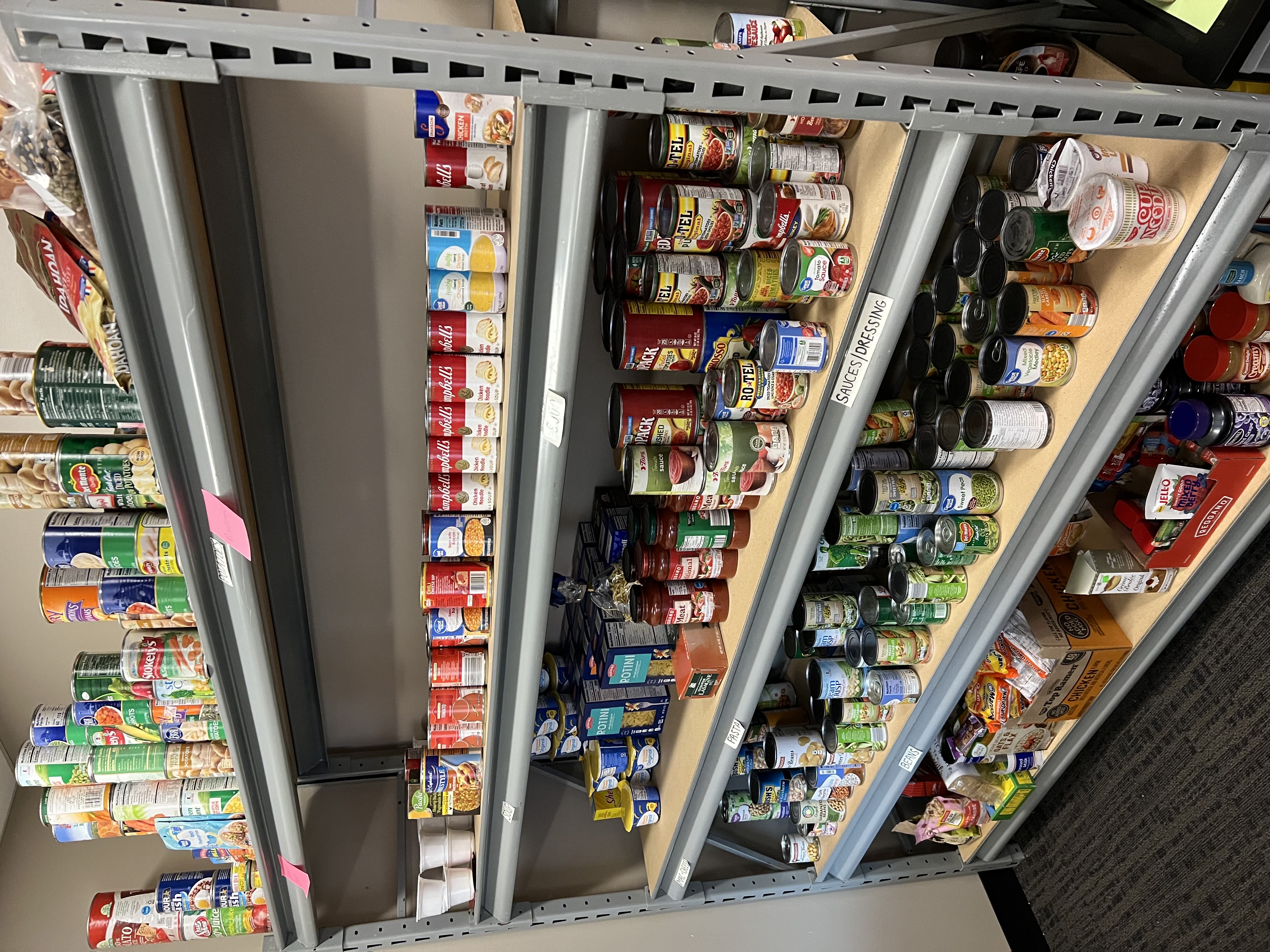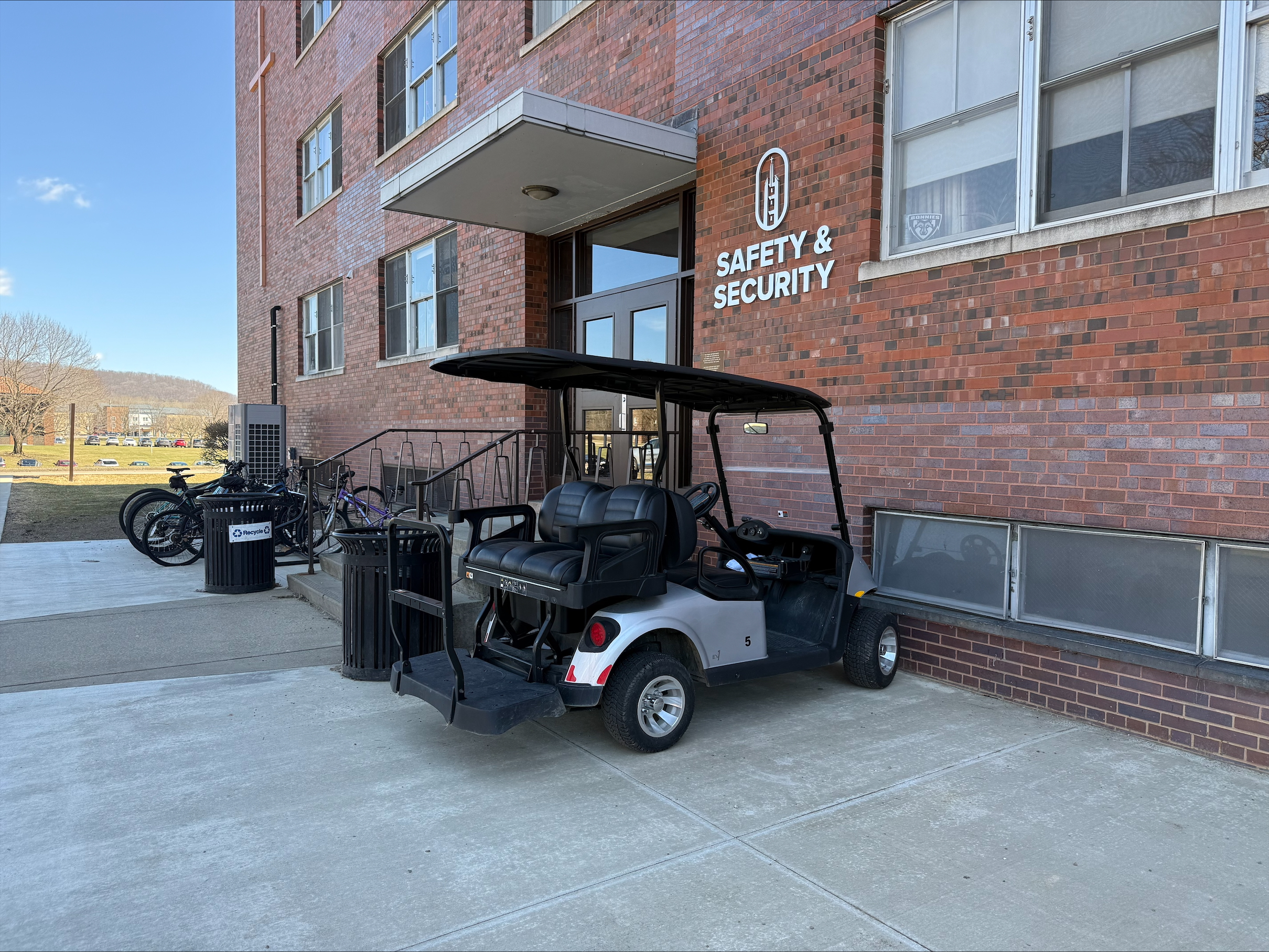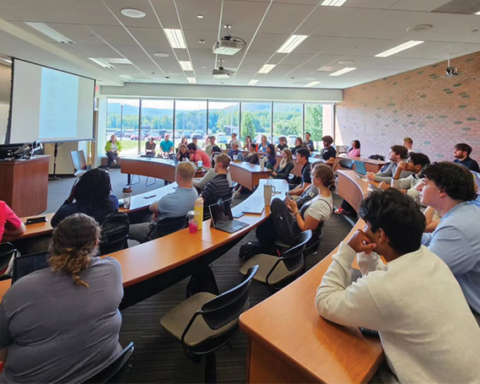Stocked shelves of cans and non-perishables in the Franciscan Center For Social Concern
David Scibilia/The Bonaventure
scibild22@bonaventure.edu
“Like any other business or organization, we’re not immune from the impacts of inflation,” said Thomas Missel, Chief Communications Officer. “From tightening operational budgets across all divisions to reducing utility costs, the university does all it can to minimize the impacts of not only inflation, but increases in health insurance costs and mandated wage increases implemented by New York state.”
Inflation, a general increase in prices, typically means a fall in the purchasing value of money. In fact, the rise of food prices in America has already had a monetary effect on Bonaventure students.
“Coming into this year, we needed to increase meal plan costs slightly more than normal, about 3.5% [half a percent more], to account for the significant spike in food costs,” said Missel.
Despite the rise of costs in room and board, Bonaventure students shouldn’t worry about inflation affecting the cost of tuition in coming years.
“Tuition typically increases about 3% per year,” said Missel. “At this time, we don’t anticipate an increase of more than that for Fall 2023, but it’s difficult to say anything definitive in November.”
In addition to tuition, students also will not see significant price increases in on-campus locations.
“Students might see increases on merchandise in the bookstore, but no more so than what’s typical at retail outlets across the nation,” said Missel.
One of the major organizations at Bonaventure that has faced challenges from inflation is the Warming House. The student-run soup kitchen has experienced greater trouble getting food to serve its guests.
“We get a majority of our food from FeedMore Western New York,” said Alice Miller-Nation, Director at the Franciscan Center for Social Concern, “[this organization] has recently had a harder time getting us proteins, fresh fruits and vegetables.”
However, whatever food FeedMore Western New York doesn’t supply is up for the Warming House to buy themselves.
“[At grocery stores] The Warming House pays what everyone else pays, and the cost of food has risen,” said Miller-Nation.
In addition to this, inflation has also caused issues when it comes to the costs involved in running the Warming House.
“The cost of our utilities are going up, too,” said Miller-Nation, “We have a limited meal delivery service for guests who can’t get to the Warming House, and the cost of gas is also something we need to factor in when budgeting.”
Another area of campus affected by inflation is Bonaventure’s food pantry, located within the Franciscan Center for Social Concern. Much like the Warming House, the food pantry also faces many issues with providing food with rising prices.
“We get food for the food pantry either from donations or our coordinators [student leaders involved in the upkeep of the food pantry] go grocery shopping,” said Miller-Nation. “It is going to cost more for us because the cost of food has gone up.”
Miller-Nation believes one of the best ways for students to help is for them to volunteer.
“[Students should] volunteer at the warming house or volunteer at the food pantry,” Miller-Nation said, “it’s our job to look outward, and to take care of the world.”
scibild22@bonaventure.edu






